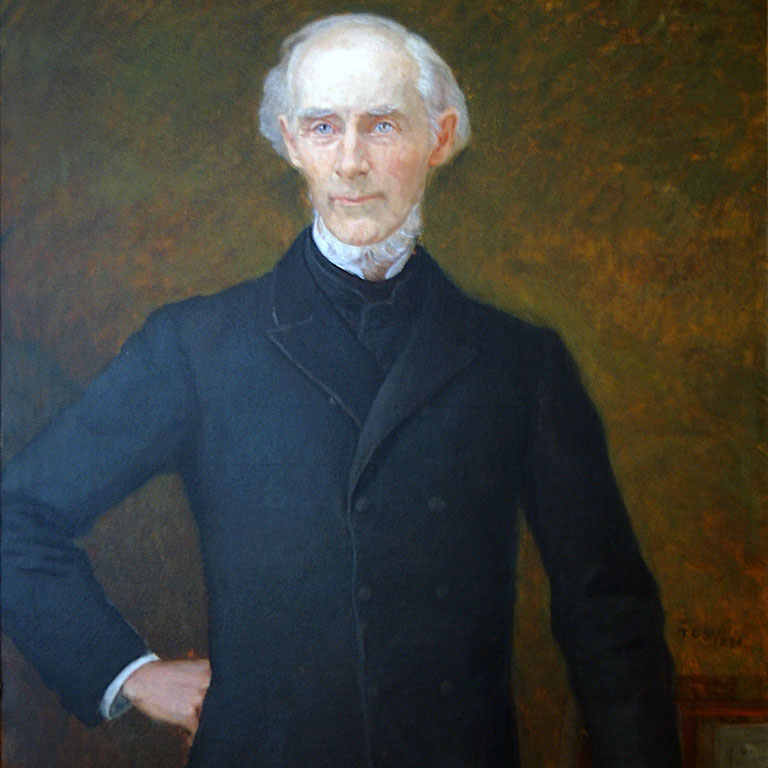Born in Scotland, he came to New Harmony, Indiana, with his family in 1828 and became part of his father Robert Owen’s utopian experiment. He became State Geologist upon the death (from malaria) of his brother, David Dale, in 1860, and he served in the 15th Indiana Volunteers during the Civil War, where he fought in the battles of Fort Donelson and Vicksburg. Richard Owen was commandant of a prison camp in Indianapolis, and was memorialized by Confederate veterans in 1913 for his humane treatment of prisoners. At IU, Owen was the second faculty member to publish a research paper, in 1852 (the first was astronomer Daniel Kirkwood). Owen’s geological interests spanned the profession, from paleontology to seismology. He died in 1890 at age 80 from accidental poisoning.

 The College of Arts
The College of Arts